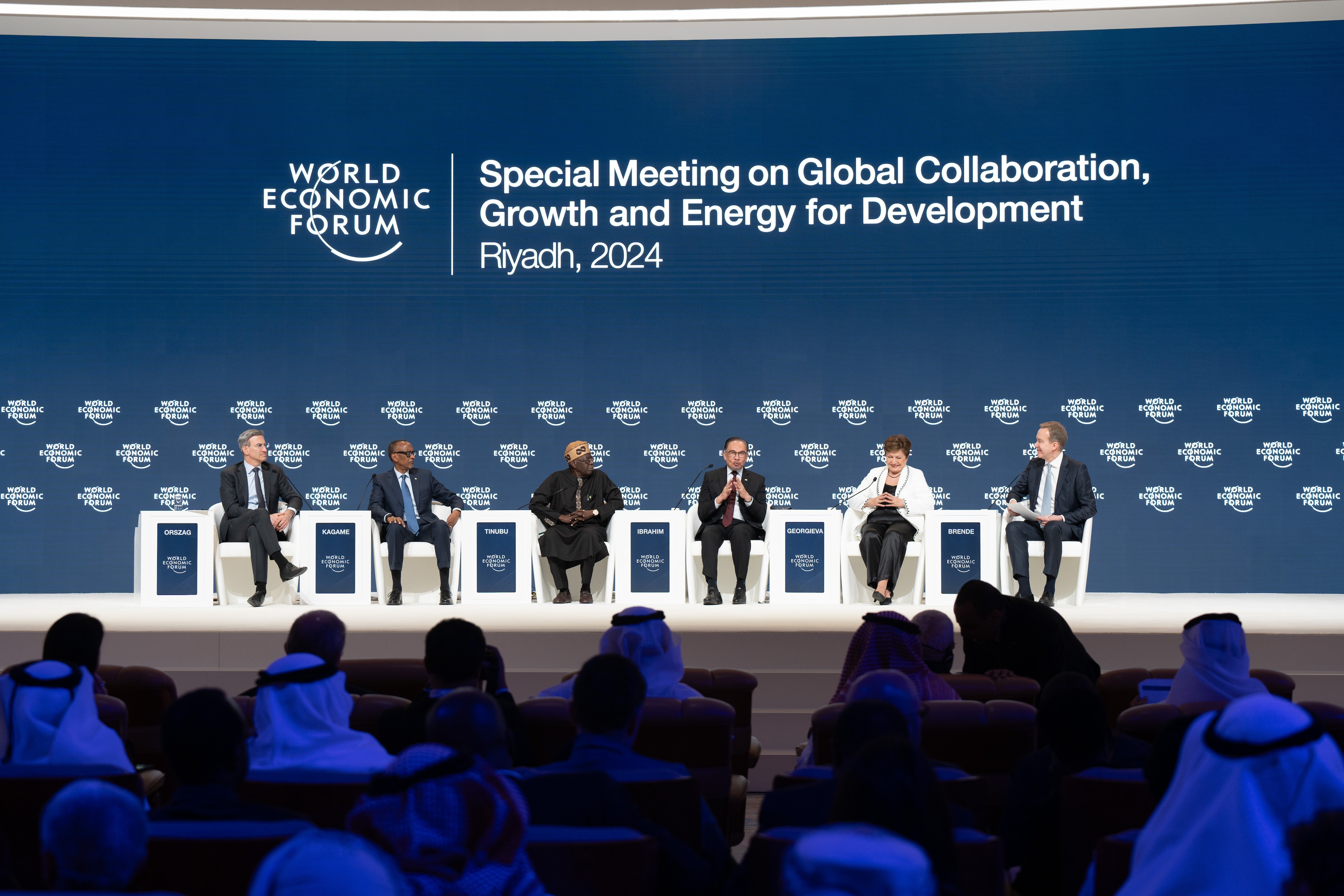Achieving the SDGs requires public-private collaboration on water. Here’s why

"If we fail on water, we will fail on all of the SDGs." Image: Unsplash.

Get involved with our crowdsourced digital platform to deliver impact at scale
Stay up to date:
Water
Listen to the article
- From flooding to droughts, the climate crisis is inextricably linked to water.
- Protecting the global water cycle can help us achieve many of the SDGs.
- Public-partnerships can unlock innovative solutions for a sustainable future.
Water is in crisis – as it is both a driver and victim of climate change. This year was supposed to be the year that water finally took its place in the spotlight: the first UN water conference in almost 50 years, held in March in New York, marked the midpoint of a water action decade that was supposed to spur action on water. Yet just six months later, water is regrettably absent from the SDG Summit, the key meeting that is meant to raise ambition on the Sustainable Development Goals (SDGs) for the next seven years.
This is even more surprising considering that if we fail on water, we will fail on all of the SDGs. Goal 5 on achieving gender equality? Girls and women spend 200 million hours a day globally collecting water. Goal 1 on poverty? Some 1.1 billion people worldwide lack access to water. Goal 4 on quality education? Around 31% of schools worldwide lack access to safe water and adequate sanitation.
What is more, water cuts across all sectors, from industry and agriculture to housing and energy. For example, 80% of global wastewater is not adequately treated while many regions suffer water scarcity. However, if we scaled and normalized recycled wastewater, it could become the primary resource for agriculture, industry, and even portable use. Concrete water solutions have cross-sectoral implications.
The Global Commission on the Economics of Water, of which I am a co-chair, proposes valuing the planet’s water cycle as a global common good. That means protecting the global water cycle for all people and generations. It also means recognizing that communities and nations are connected regionally and globally; that water is increasingly intertwined with climate change and depletion of the planet’s natural capital; that water is critical to food security; and that water cannot be put back on a sustainable trajectory without justice and equity in every corner of the globe.
What is needed to deliver on a sustainable water future for all?
Historically, the water supply and sanitation sector has faced shortcomings in both public and private sector-run systems. The public sector is usually tasked with setting policy objectives (e.g. service quality), regulatory frameworks and incentives, and some or all elements of service delivery. Private operators claim they can increase service efficiency and deploy innovation. Inappropriate regulatory frameworks or contractual arrangements and financialized business models have, however, led to poor maintenance of existing assets, underinvestment in infrastructure and service development, service disruption or deteriorating service quality. Looking beyond water supply and sanitation, property rights, rent-seeking behaviour and persistent failure to value water have also, in many instances, hindered critical reforms aimed at curbing over-extraction of water.
Mobilizing resources to build a sustainable water future requires multi-stakeholder partnerships between government, business, and civil society. Talking about public-private partnerships (PPPs) will raise the specter of ill-fated partnerships of the past decades. The privatization of Thames Water, for example, resulted in the company having to largely bear the debt of its own acquisition, leading to higher prices for consumers and service cuts, while driving the utility near bankruptcy. Instead of investing in infrastructure, Thames Water and other UK water companies discharged raw sewage into rivers and seas more than 300,000 times in 2022.
What is the Forum doing to address the global water challenge?
The power of successful public-private partnerships
It does not have to be this way. There are other examples of PPPs done right, showing the opportunities inherent in raising private finance for the common good. Singapore, which historically has faced challenges of finding sufficient water catchment areas to collect and store rainwater, has shown through the case of its Public Utility Board (PUB)that partnerships can deliver essential services to the benefit of all. By working closely with partners to drive research and development in the water sector, the PPP approach in Singapore gives businesses a suitable platform for innovation that effectively contributes to a broad water policy and security objective.
Building the right kind of PPPs depends on finding ways for both investors and users, upstream and downstream communities, and the environment to benefit. Investors need incentives that ensure appropriate returns, users need access to a properly defined service, while being protected from high prices when there is insufficient competition. This involves setting conditions that steer both public and private investment toward activities that maximize public benefits now and in the future. The presence of independent economic regulators operating in the public's best interest is key to ensuring fairness, transparency and accountability within these partnerships.
Moreover, to correct the chronic underinvestment plaguing water worldwide, a paradigm shift in financing is needed. Estimates suggest that tripling investments would ensure universal access to water and sanitation while fostering sustainable usage across industries. In doing so, the structure of financing is as vital as its quantity. Long-term, mission-oriented financing can direct public and private funds towards critical water objectives. Clear objectives that galvanize public and private finance could, for example, lead to more cases like CDG Capital’s big investment in a large desalination plant in Morocco, which is providing clean drinking water to local populations and supporting agricultural development.
On the journey to water sustainability, public and private investors both have a vital role. Natural monopolies such as water infrastructure involve substantial capital requirements, sunk costs, and extended payback periods. Well-structured PPPs that are goal oriented and share risks and rewards can help drive mission-oriented innovation that has commercial benefit. Investments in smart technologies that combine water, data and communication technology (e.g. smart sensors and meters) can improve water systems' efficiency and equity. Other critical innovations include those around storage systems for water, leakage in water delivery systems, agriculture, recycling industrial wastewater, and water-efficient energy systems. These areas and technologies, often requiring collaboration between public and private sectors, hold the potential to reshape water management paradigms.
The SDG Summit, which seeks to unlock fresh ambition and resources ahead of our 2030 deadline for the SDGs, must have water at its center. Water goes across all the SDGs. Water goes across all sectors. Water must be at the heart of designing measurable and actionable policies on the ground.
Don't miss any update on this topic
Create a free account and access your personalized content collection with our latest publications and analyses.
License and Republishing
World Economic Forum articles may be republished in accordance with the Creative Commons Attribution-NonCommercial-NoDerivatives 4.0 International Public License, and in accordance with our Terms of Use.
The views expressed in this article are those of the author alone and not the World Economic Forum.
Related topics:
The Agenda Weekly
A weekly update of the most important issues driving the global agenda
You can unsubscribe at any time using the link in our emails. For more details, review our privacy policy.
More on Forum InstitutionalSee all
Gayle Markovitz
April 28, 2024
Gayle Markovitz
April 27, 2024
Mirek Dušek and Maroun Kairouz
April 27, 2024
Kate Whiting
April 26, 2024
Spencer Feingold and Gayle Markovitz
April 19, 2024
Kate Whiting
April 17, 2024






